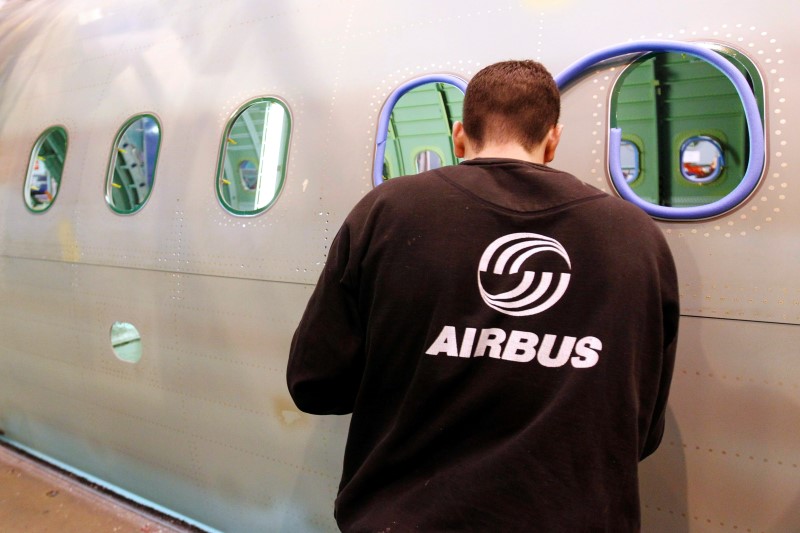Tim Hefer
PARIS (Reuters) – Airbus faces new pressure over a planned ramp-up of passenger jet production as the world’s largest planemaker tries to overcome ongoing parts and labor shortages, industry sources said on Thursday. It is unclear whether the slowdown will jeopardize overall 2024 delivery targets as deliveries lag production decisions by several months, but sources said assembly of several dozen aircraft could be delayed in the second half of the year. Several airlines could see individual deliveries already running an average of 1.5 months behind schedule with further delays, the people said, asking not to be named. An Airbus spokesman referred to the group’s latest quarterly results, in which it confirmed a delivery target of 800 aircraft by 2024, and declined to comment further. Airbus plans to increase production by about 50% to 75 narrowbody aircraft per month in 2026. Sources have previously said the company hopes any delays can be absorbed in time to meet its medium-term target, but the available buffer for delays is shrinking. The supply chain is responsible for up to 80% of the contents of Airbus aircraft and extends over nine levels. Parts are typically ordered 12 to 13 months in advance for standard narrowbody aircraft, such as the sought-after narrowbody A321neo, or longer for variants that require more customization. However, lead times for some scarce parts such as forgings have more than doubled to two years, sources said. Airbus holds regular internal meetings to match industrial production with demand over a rolling forecast several years into the future. The rolling forecasts are translated into fixed production plans for each aircraft for the next three months, with final adjustments then made monthly, industry sources said. Suppliers said these monthly requests, known as “recalls,” are regularly delayed, pointing to further delays in getting planes onto assembly lines later this year. The mounting pressure comes as airline executives prepare for a high-profile industry summit in Dubai and the International Air Transport Association is expected to voice concerns about aircraft shortages for the second year in a row. On a positive note, Airbus is increasingly confident of achieving certification for its A321XLR passenger jet in time for July’s Farnborough Airshow, industry sources said. A spokesman for the European Union Aviation Safety Agency (EASA) said it expected to certify the plane by summer and declined to comment on a specific date.


